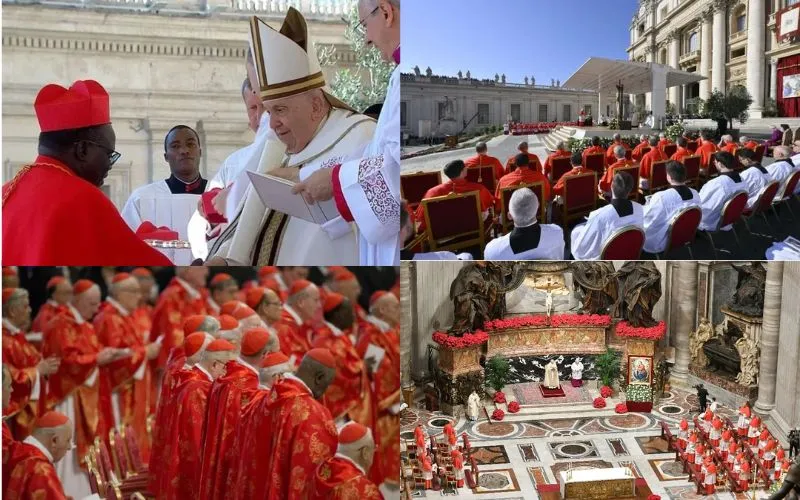The cardinal said that he would now need to reflect on “what new ways we can go -- even in the face of a history of multiple failures -- to proclaim and witness to the Gospel” in the Munich archdiocese.
He said: “The bishop is not alone in this and in the next few weeks I will think about how we can together contribute even more to the renewal of the Church here in our archdiocese and as a whole; because the pope takes up much of what I mentioned in my letter to him and gives us important impulses.”
“What I also underlined in my declaration remains: that I have to bear personal responsibility and also have an ‘institutional responsibility,’ especially in view of those affected [by clerical sexual abuse], whose perspective needs to be included even more effectively.”
CNA Deutsch reported that German bishops’ conference chairman Bishop Georg Bätzing expressed relief at the pope’s decision not to accept Marx’s resignation.
Thomas Sternberg, president of the influential lay Central Committee of German Catholics (ZdK), also welcomed the news.
(Story continues below)
He told the Rheinische Post that the pope’s letter showed “that the alleged dissatisfaction with the ‘Synodal Way’ in Germany does not correspond to the multi-layered reality.”
He was referring to the controversial multi-year process bringing together bishops and lay people to discuss four main topics: the way power is exercised in the Church; sexual morality; the priesthood; and the role of women.
Marx, who has served as archbishop of Munich and Freising since 2007, had said that he hoped his resignation would “send a personal signal for a new beginning, for a new awakening of the Church, not only in Germany.”
In April, Marx asked German president Frank-Walter Steinmeier not to bestow the Federal Cross of Merit on him after an outcry among advocates for abuse survivors over the award.
He had been scheduled to receive the Bundesverdienstkreuz, Germany’s only federal decoration, at the Bellevue Palace in Berlin April 30.
Marx said that he did not want to draw negative attention to other award recipients.
Peter Bringmann-Henselder, a member of the Affected Persons Advisory Board of Cologne archdiocese, had urged the president to withhold the honor, citing Marx’s handling of cases when he was bishop of Trier in 2001–2007.
“We do not understand how you can award Cardinal Marx the Federal Cross of Merit, a man who is still criticized for not having consistently investigated cases of sexualized violence in his former diocese of Trier and who is accused of covering up cases in that context,” he wrote.
The official web portal of the Catholic Church in Germany reported on Thursday that Marx’s handling of cases in Trier would be “comprehensively investigated” by an independent commission on behalf of the diocese that has been led by Bishop Stephan Ackermann since 2009.
It also noted that in the next few months the Munich law firm Westpfahl-Spilker-Wastl is expected to release a study of the treatment of abuse claims in the archdiocese of Munich and Freising, including during Marx’s time as archbishop.
The portal added that Timo Ranzenberger, an alleged abuse survivor, wrote a six-page letter to Marx, dated May 3.
According to CNA Deutsch, Ranzenberger had reported a pastor in Freisen, in the Diocese of Trier, for alleged abuse in 2006, when Marx was the local bishop.
Ranzenberger told the Saarbrücker Zeitung that he sent the letter, accusing Marx of responding inadequately to the allegations 15 years earlier, on May 5. He received a response from the Munich archdiocese on May 22, the day after Marx’s resignation letter to the pope.
He said that he would also write to Bishop Bätzing, Marx’s successor as German bishops’ conference chairman.
“Subsequently, both letters will also go to Pope Francis,” he added.
In his personal declaration published June 4, Marx said that he had repeatedly thought about resigning from office over the past few months.
“The events and debates of the past weeks, however, only play a subordinate role in this context,” he said, explaining that his request to resign was an “exclusively personal decision.”









